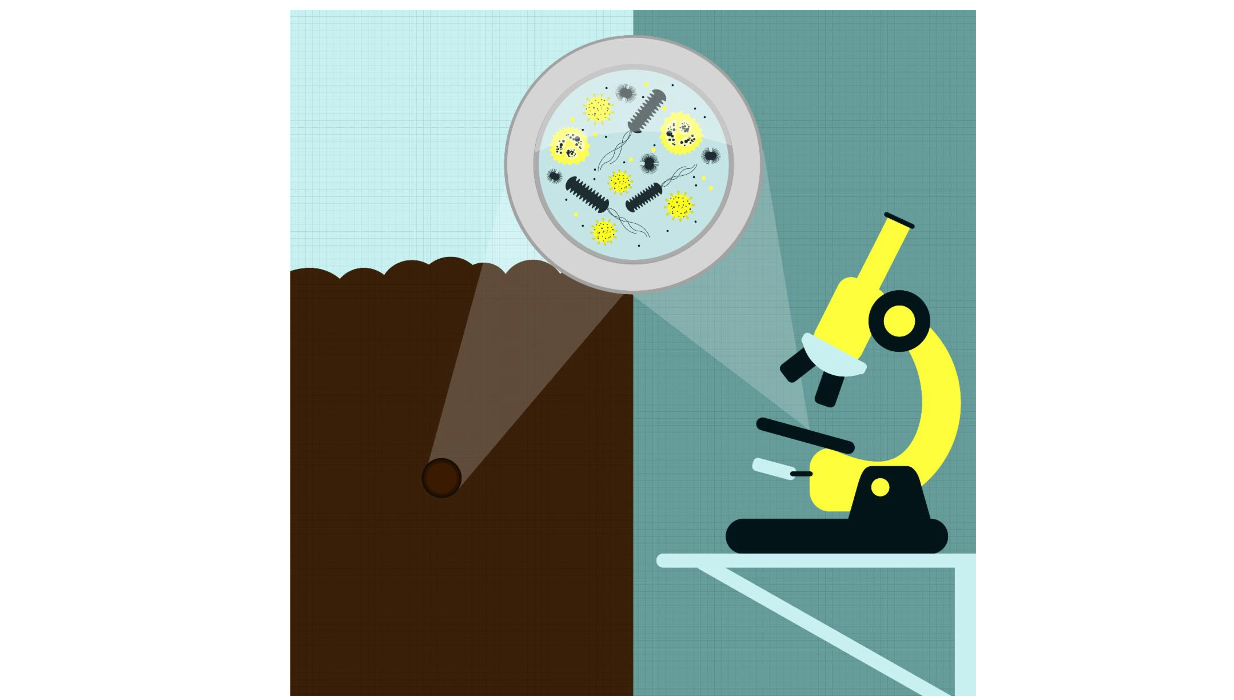Soils 101: Soil Microbes

Former President Franklin D. Roosevelt said, “A nation that destroys its soils, destroys itself.” We may not know whether he specifically recognized the value of microbes to soil health, but he certainly understood the value of healthy productive soil to a society. Today, agronomists (soil scientists) and gardeners alike know that microbes are a key indicator of healthy soils.
First, let’s step back and define “healthy soil.” We can’t take its temperature or measure BMI or blood pressure, like we do for humans or animals. The Rodale Institute defines healthy soil as one that “contains aggregates that help it bind together, preventing erosion and run-off. It can hold water, so plants fare better in drought. It contains bacteria and fungi that help plants fight diseases and pests, and it contains adequate minerals and nutrients that feed plants.” When we look at the role of soil microbes we can see the direct connection to tenets of soil health.
Soil microbes:
- Help soil resist soil erosion.
- Store water.
- Degrade pesticides and other chemicals in the soil.
- Suppress pathogenic (disease causing) microorganisms.
- Breakdown organic matter into forms useful to the plants, increasing soil fertility.
- Help soil store carbon.
Soil scientists say that a teaspoon of healthy, productive soil contains 100 million to 1 billion microbes. This mind-boggling number of microbes is the goal for our gardens. So how do we achieve it?
In order to thrive, microbes need food, shelter and variety. So how do we produce and maintain microbe-laden soil? Here are a few best practices that will make a big impact.
- Use compost, in any form including compost tea (recipe below), generously and often, in and on your soil.
- Avoid soil disturbance, practicing no-till, if possible.
- Keep your garden soil covered with living plants (a living mulch) and residue from old crops.
- Grow living crops in your soil for as much of the year as possible (plant a cover crop in the off-season).
- Avoid prolonged periods of dry soil (irrigate when necessary).
School gardens are much more than a place to produce crops. They are a living environment that demonstrate how the tiniest of organisms can have a huge impact on the overall health of an ecosystem.
- Categories: